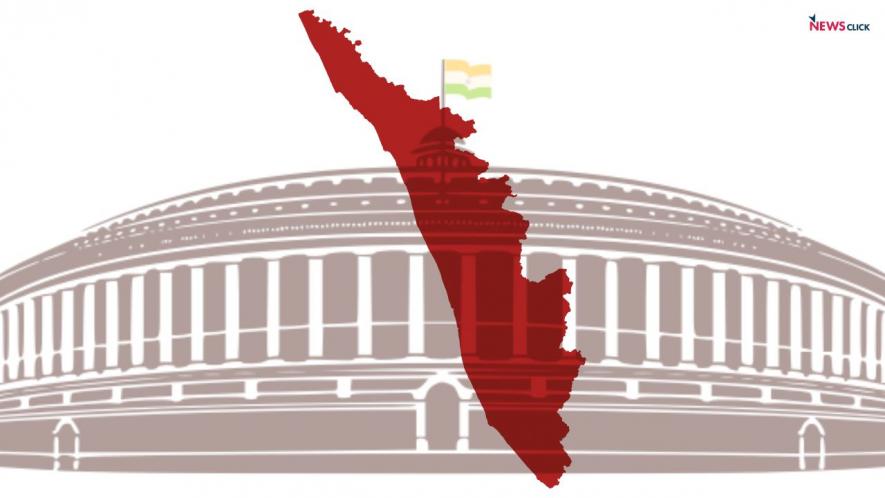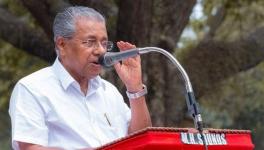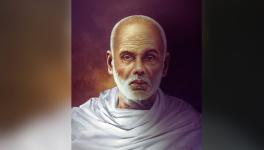Politics Behind The Call for Ending Autonomy of Kerala State

Since assuming power in 2014, the Narendra Modi-led BJP (Bharatiya Janata Party) government has systematically challenged the foundation of India's constitutionally recognised federal values and democratic principles. Through various actions, such as the abrogation of Article 370, introducing an ordinance to nullify a Supreme Court order granting administrative autonomy to the Delhi government, and weaponising central agencies like ED and CBI against opposition leaders, the government has displayed a clear intent to consolidate power at the Centre, disregarding the essence of India as a Union of states.
Furthermore, encroachment upon subjects under states' jurisdiction, demonstrated through the agricultural laws, Labor Codes, and the implementation of the Goods and Services Tax (GST), are further evidence of the ruling party's concerted effort to undermine provincial states' autonomy.
Moreover, BJP's inclination towards presidential-style governance and heightened centralisation, evident in their slogan 'One Nation, One Election,' is part of shaping a conducive atmosphere for anti-federal moves in public policy. In such a context, the opinion piece published by News 18 on "Why Kerala should be made a Union territory with partial autonomy" deserves critical scrutiny.
Debunking the Claims
The News 18 article suggests turning Kerala into a Union territory with partial autonomy for a short period, as the author believes that the state's ability to handle present economic challenges is inadequate and India's federal structure is ill-suited to address them.
The anxieties expressed in the article raise the question of whether the author is troubled by the BJP's absolute insignificance in Kerala's political landscape or by the agony of watching the Communist ministry's second term in Kerala. Because it is unlikely that any sane individual would perceive a necessity for direct governance from New Delhi over a state that consistently scores high in all major national assessments of governance, including the Niti Aayog. It also seems ghost-written at the behest of a Union Minister from the state who already has won infamy with his explanation of the petrol price hike by the BJP Government and efforts to scuttle all development activities.
The author's key assertion is that Kerala's major economic activity revolves around the liquor and lottery business. This claim, also raised by Kerala Governor Arif Mohammed Khan, has no basis. The combined earnings from liquor and lottery in Kerala constitute just 13% of the total revenue receipts and have witnessed a decline of at least 3% compared to pre-COVID times. Moreover, it is worth noting that lottery revenue accounts for less than 2% of the state's total revenue!
Similarly, contrary to the claims of the author, Kerala is experiencing inflation to a lesser extent than the national average. For instance, in August 2022, while the consumer price index increased by 7% nationwide, Kerala witnessed a comparatively lower inflation rate of 5.73%. The reason behind this is attributed to the robust public distribution system in the state rather than withdrawing from such commitments.
In the past decade, Kerala's development framework was often characterised by the paradox of a 'high Human Development Index and low growth.' However, in recent years, the state has experienced a sustained and remarkable growth rate while maintaining a high HDI. For example, in the financial year 2021-22, Kerala achieved an impressive growth rate of 12.8%, and the manufacturing sector has emerged as the second-largest growing sub-sector in the state. In 2021-22, the average income per person in Kerala surpassed the Indian average by over 1.5 times.
However, it is important to note that the Left Democratic Front government in Kerala strongly emphasises distributive politics rather than solely focusing on achieving high growth rates. This commitment is reflected in Kerala's achievement of having the lowest poverty ratio as per the National Multidimensional Poverty Index.
Renowned social scientists like Patrick Heller and Olle Törnquist regard Kerala as one of the most successful cases of development worldwide primarily because of the state's remarkable success in translating economic resources into tangible human benefits. This success stems from the "continuous mobilisation from below," the strong presence of workers' unions, and the institutionalisation of decentralised public action, and it has sharpened programmatic party politics in the state and the genuine regard for rights-based political culture.
Therefore, it is not the concentration of power that helps but rather the state's historical development trajectory that emphasises strong public action, promotion of social citizenship, and the public accountability of governing regimes.
Moreover, the author should perhaps acknowledge that any state's public policy is deeply rooted in historical contingencies and economic, social, and cultural factors. Therefore, before stepping out with reductionist prescriptions like turning the state into a union territory, he should try to understand the processes and structures that set out the development paradigms.
The author is concerned regarding the share of agriculture in Kerala compared to other Indian states. However, Kerala's high population density of 859 persons/square kilometre is the third highest in the country, compared to the national average of 382 persons per square kilometre. Moreover, the share of total uncultivable land is 42.41& as of 2019-20. Both these factors have a significant effect on the way Kerala's policy-making is structured.
The state of Kerala has been intervening with a pro-farmer approach and is making efforts to make agriculture a viable proposition by supporting value-addition and marketing. Faulty trade policies of the Union governments led by BJP and Congress, like the India-ASEAN Free Trade Agreement and systematic dismantling of Commodity Boards governing commercial crops, have adversely affected farmers in the state.
It's not a secret that the services sector in Kerala accounts for 47.29% (as of 2020-21) of the total workforce, in contrast to the national average of 29.6%. This significant presence highlights the state's comparative advantage in shaping a knowledge economy, a path the current LDF government is actively leading. This will also allow the state to capitalise on its high Human Development Index (HDI), which otherwise enabled the foreign migration of skilled labour that brought impressive remittance back to the state.
Furthermore, the author raises more claims, such as narcotics misuse in Kerala and the interstate river water dispute, like the Mullaperiyar Dam. Firstly, these issues are not unique or exclusive to Kerala, and it should be noted that Uttar Pradesh, under Yogi Adityanath's leadership, tops the list for the highest drug usage in the country, not Kerala. Neither any of the author's arguments present even a weak case for transferring Kerala's administrative authority to the hands of Modi, nor is the article's intention innocent, particularly at this political juncture.
The Politics of Anti-Kerala Propaganda
In recent years, the Bharatiya Janata Party's (BJP) top leadership, including Modi and Amit Shah, has consistently resorted to derogatory remarks and insults against the state of Kerala.
Kerala, a state with a Human Development Index comparable to many first-world nations, has not only been unfairly compared by the Indian prime minister to the conditions in Somalia, but he has also blatantly endorsed propaganda films like 'Kerala Story.' The film has also received tax concessions in several BJP-ruled states. Despite the filmmakers' admission in the Supreme Court that they lack authentic data to support their claims of "love jihad" in Kerala, Modi has not registered an apology for spearheading anti-Kerala propaganda.
Hate remarks were also made by the Home Minister, Amit Shah, during an election rally in Karnataka, where he said, "There is Kerala in your neighbourhood. I do not wish to say more," hinting that Kerala was a hotbed of terror and a defeat for BJP in Karnataka would convert it into the same. Such inflammatory remarks, repeatedly from positions of power, create conditions that could potentially incite violence against Keralites residing in other parts of the country and the Prime Minister, as the Home Minister, are culpable of whipping up hatred against a state of the Indian Union.
In addition, the Union government has been squeezing the Kerala state financially by marginalising the state's development aspirations in the Union budget, trimming down Kerala's annual public borrowing limit, and even reducing Mahatma Gandhi National Rural Employment Act (MGNREGA) and public health allocation. Even during the 2018 Kerala Floods, the Union government failed to provide the requested amount for crisis management and blocked Rs 700 crore voluntary aid from the UAE government.
Nonetheless, Kerala consistently ranks at the top in numerous national rankings, including the Public Affairs Index, NITI Aayog's Sustainable Development Index, and NITI Aayog's Health Index. The state has become a benchmark for effective governance, leading a Delhi-based journalist to remark, "What Kerala thinks today, India thinks tomorrow." In recent years, Kerala has demonstrated remarkable resilience in the face of major natural disasters, enduring two rounds of floods and a severe cyclone.
The state has also garnered international recognition for effectively addressing the challenges posed by the COVID crisis and has overcome economic contractions at an accelerated pace. These accomplishments are because the state leveraged its robust public infrastructure and harnessed the strength of civil society.
In what can only be described as reminiscent of a disappointed bully, the BJP's frustrations over the consistent rejection by the people of Kerala in the electoral domain have manifested in their treatment of the state. The blatant violation of federal principles and abuse of power is BJP's usual response to the opposition-ruled states. Whether it is Kashmir, Delhi, or Kerala, the treatment of citizen subjects by the Union government is vindictive. The people of Kerala are capable of understanding the underlying motivations behind the calls for the removal of the state's autonomy. Nevertheless, Kerala will steadfastly defend pro-people policies and resist communal forces in India, as it has always done.
The writer is All India President of the Students’ Federation of India. All views are personal.
Get the latest reports & analysis with people's perspective on Protests, movements & deep analytical videos, discussions of the current affairs in your Telegram app. Subscribe to NewsClick's Telegram channel & get Real-Time updates on stories, as they get published on our website.
























